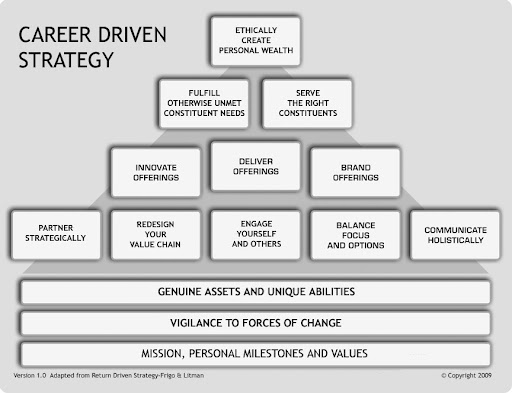Biases are simply symptoms… here are the real enemies of good judgment and decision making!
For this issue, let’s talk about another awesome coaching comment my friend and colleague, Professor Joel Litman, delivered to his workforce. Read below to know about the emotional truth behind every bad decision making. |
|
Biases are simply symptoms… here are the real enemies of good judgment and decision making! Time and time again, we see people (even the smart ones) make shockingly bad decisions. From brilliant business leaders who greenlight failing ventures, to seasoned investors who ignore the obvious red flags, the wreckage of bad choices is everywhere. Analysts point to dozens of culprits: cognitive biases, flawed assumptions, and lack of discipline. In fact, there are names for these things now— hindsight bias, confirmation bias, sunk cost fallacy, Dunning-Kruger effect, anchoring, and on it goes. Here’s the thing: You could spend years buried in textbooks and YouTube explainers cataloguing these psychological traps. However, for Professor Joel Litman , Chairman and CEO of Valens Research and Chief Investment Officer of Altimetry Financial Research, we should adopt a radically different insight: None of those biases are the root cause of bad decision-making. So, what gives? Well, the actual root is emotional. … and the solution? It’s surprisingly simple—and profoundly human.
Why People Still Make Dumb Decisions Professor Litman’s message is sharp and clear: All those cognitive biases we obsess over? They’re symptoms , NOT causes. Take hindsight bias —the urge to say “I knew that would happen” after the fact… or recency bias —letting the most recent news distort long-term perspective… or the ever-so-popular confirmation bias —cherry-picking information that supports your view while ignoring data that contradicts it. Yes, these are real… and yes, they affect decision-making. However, they don’t start there. Dig deeper, and you’ll find something else driving the wheel. According to Professor Litman: “When you look at every one of these biases, the cause is the person going into the decision with some negative mental state—fear, greed, pride, shame, or anger.” In other words, you didn’t make a bad decision because of a textbook bias. You made it because you weren’t in the right headspace to begin with. Picture this: Groupthink doesn’t occur because people suddenly forget how to think for themselves. It happens because they’re afraid —of rejection, of sounding stupid, of rocking the boat. The sunk cost fallacy? That tendency to keep throwing money or effort into a bad investment because you’ve already spent so much? That’s pride and fear talking. Pride says, “I can’t admit I was wrong.” Fear says, “What will happen if I give up now?” Hindsight bias? That’s pride again. “I knew it all along” is just code for “I don’t want to admit I missed it.” Even greed—often glamorized in certain circles as ambition—clouds judgment and steers us toward poor outcomes. As Professor Litman says: “There’s a difference between wanting to make money and being greedy. We know the difference.” So, rather than treating decision-making like an obstacle course of invisible psychological traps, Professor Litman invites us to SIMPLIFY. No, not by ignoring biases but by tracing them to their emotional roots and changing what we bring to the decision in the first place. You don’t even need to memorize all these biases. The real fix is to focus on being more loving, more joyful, and more peaceful in your day and in your decisions. This might sound like a page from a self-help book rather than the playbook of a financial strategist… but Professor Litman is serious about this. His career, steeped in analyzing markets, uncovering truths hidden in corporate financials, and training investment professionals, gives him a unique vantage point. What he’s seen is this: When people make decisions from love, joy, and peace—not pride, fear, or greed—they make better decisions. Period. How do we do that? We need not psychoanalyze our childhood trauma or unearth every repressed memory of failure and fear. Professor Litman doesn’t suggest years of therapy (although there’s nothing wrong with that), nor does he believe we need a PhD in psychology. Instead, his solution is elegantly straightforward:
These shifts may sound “soft,” but the results are anything but. After all, they translate into better hiring decisions… smarter investment calls… healthier partnerships… more resilient leadership… and perhaps most importantly, fewer sleepless nights replaying conversations and choices gone wrong. A Strategy Worth Taking You see, Professor Litman’s approach strips away the academic complexity and gets to the core of what drives us. It challenges the belief that smarter decisions require more knowledge, more frameworks, or more analysis. What if better decisions simply require a better state of mind? What if choosing love over fear and joy over pride isn’t just a personal development mantra, but a powerful mental tool for business, leadership, finance, and life? What if the real measure of wisdom isn’t how many biases you can name, but how many moments you can meet with peace? Professor Litman’s philosophy is both humbling and empowering: You don’t need to be perfect. You just need to be present —with love, joy, and peace in the driver’s seat. That’s when real intelligence shows up. As a result, that’s when truly good decisions begin. Have a happy weekend, everyone! May you all apply this insight as you go about your rest days. EXCITING NEWS AHEAD The world of work has shifted, and there’s no going back. The barriers to entry have never been lower for talented professionals to work independently, and today’s massive external workforce is hardly a pandemic-produced fad. Business owners can only survive in the new work landscape by partnering with this deep talent pool. With decades of experience in both small-business entrepreneurship and executive management at PwC, I truly believe that the future of work is independent. With that, I’m happy to share with you that my book, co-authored with Walter Scott Lamb, is now available on Amazon! Free Birds Revolution: The Future of Work & The Independent Mind This new bestseller is an essential read for both independent professionals and corporate executives. Here, we provide educational and practical guides to unpack the ever-growing workforce and offer you crucial ways to become a client of choice. Click on the link above to order your copy. Let this bestselling book help you future-proof your career and organization in the new world of work. For a daily version of this newsletter, please subscribe here. |

Miles Everson
CEO of MBO Partners and former Global Advisory and Consulting CEO at PwC, Everson has worked with many of the world's largest and most prominent organizations, specializing in executive management. He helps companies balance growth, reduce risk, maximize return, and excel in strategic business priorities.
He is a sought-after public speaker and contributor and has been a case study for success from Harvard Business School.
Everson is a Certified Public Accountant, a member of the American Institute of Certified Public Accountants and Minnesota Society of Certified Public Accountants. He graduated from St. Cloud State University with a B.S. in Accounting.



